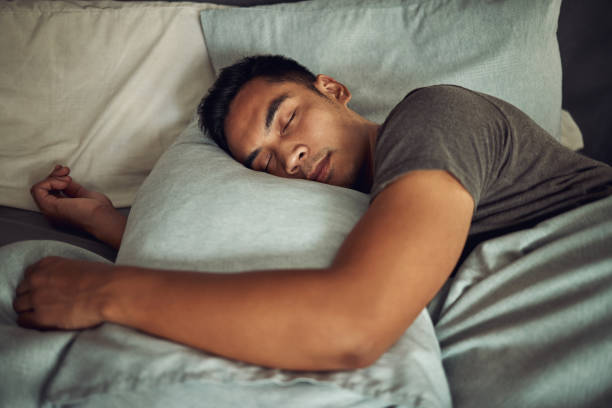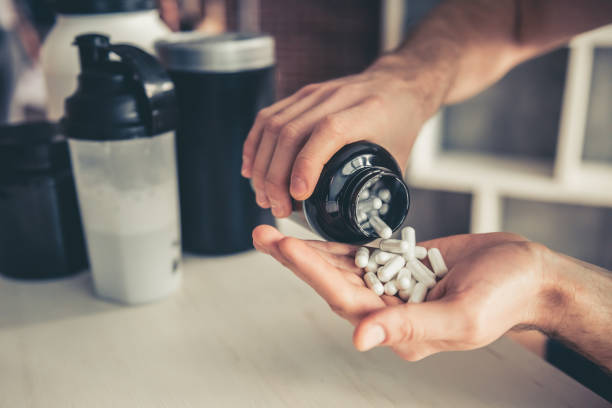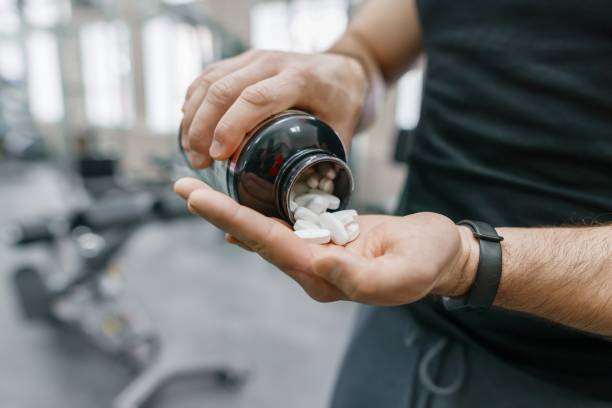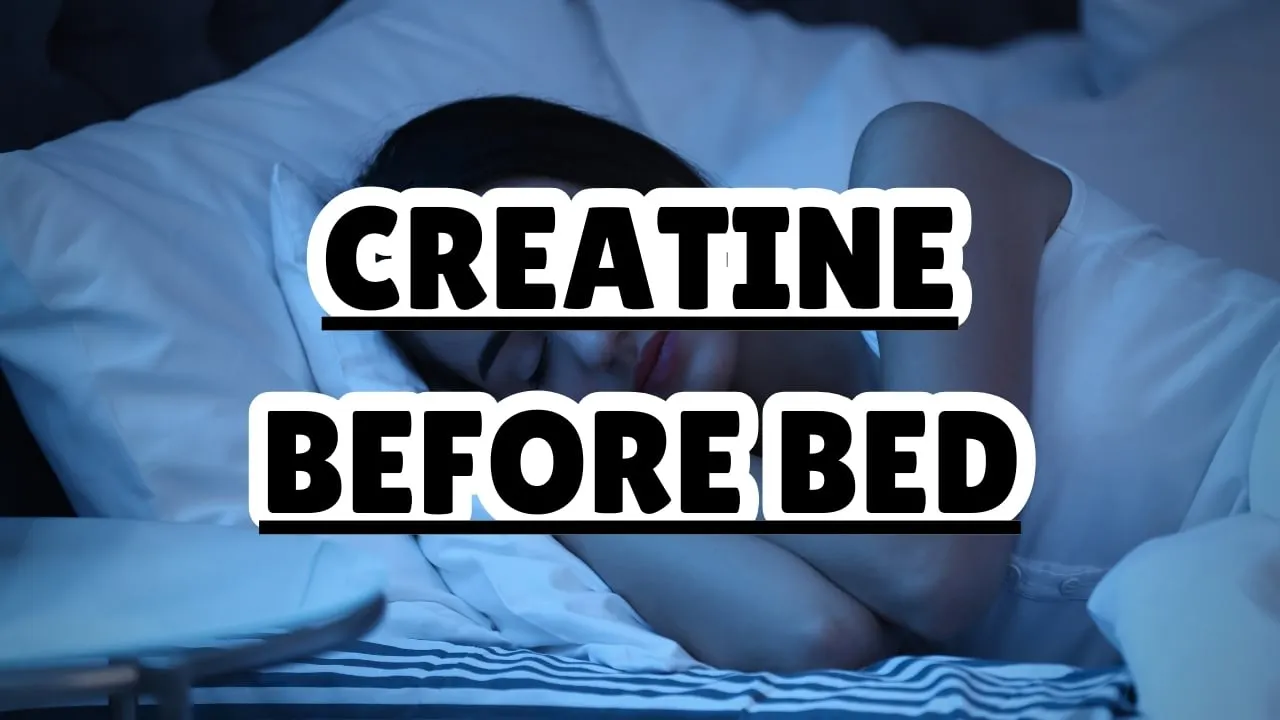Can You Take Creatine Before Bed? Exploring Nighttime Use | Combat Creatine
Should You Take Creatine Before Bed? Exploring the Benefits and Science
Creatine has long been a favorite supplement for fitness enthusiasts and athletes alike, known for its role in improving muscle strength, endurance, and recovery. But when is the best time to take creatine?
Specifically, what happens if you take creatine before bed? In this article, we'll dive deep into whether nighttime supplementation is effective, how it might affect your sleep, and how it could potentially optimize your overall fitness routine.
Read on to discover the science behind creatine supplementation and how timing could play a role in maximizing its benefits.

Outline of the Article
- What is Creatine, and Why Do People Take It?
- The Benefits of Taking Creatine Before Bed
- Does Taking Creatine at Night Affect Your Sleep?
- How Does Creatine Work in Your Body?
- Best Time to Take Creatine: Morning, Post-Workout, or Night?
- Forms of Creatine: Which One is Best for Nighttime Use?
- How to Take Creatine Supplements for Maximum Absorption
- Is a Loading Phase Necessary When Taking Creatine?
- Creatine Benefits Beyond Exercise Performance
- Tips to Ensure You Don't Miss Your Nightly Creatine Dosage
1. What is Creatine, and Why Do People Take It?
Creatine is a natural amino acid derivative found in the body, primarily stored in the muscles as phosphocreatine. It plays a key role in the production of adenosine triphosphate (ATP), the primary energy source for high-intensity exercise.
Many people take creatine supplements to improve physical performance, increase lean muscle mass, and support muscle recovery.
The effects of taking creatine go beyond just enhancing athletic performance. Studies on creatine have shown it may also improve brain function and cognitive performance, making it a versatile supplement for both physical and mental wellness.
For a deeper dive, check out the Creatine Supplements Ultimate Guide.
2. The Benefits of Taking Creatine Before Bed
Many fitness enthusiasts wonder whether it's a good idea to take creatine before bed. While most people consume creatine post-workout, research suggests that taking creatine before going to sleep could be just as effective, if not more so.
Here’s why:
- Muscle Recovery: Creatine helps replenish ATP levels, which can support muscle recovery during the body's natural repair processes that occur at night.
- Better Sleep Quality: Some studies suggest that creatine supplementation might contribute to better sleep by reducing the likelihood of waking up due to low energy levels.
- Long-Term Saturation: Taking creatine at night ensures steady saturation of creatine levels in your muscle cells, contributing to consistent benefits over time.
3. Does Taking Creatine at Night Affect Your Sleep?
One common concern is whether taking creatine at night could affect your sleep.
The answer?
Creatine is generally safe and does not directly interfere with sleep. Unlike caffeine, it doesn’t act as a stimulant. In fact, taking creatine supplements before bed might even promote better sleep by stabilizing energy levels through the production of ATP.
However, some people may experience minor digestive discomfort if they take creatine right before bed, so it's important to monitor your body's response.
To ensure you don’t miss out on quality sleep, consider consuming your dose at least 30 minutes before going to sleep.

4. How Does Creatine Work in Your Body?
Creatine increases your body’s phosphocreatine stores, allowing for the rapid production of ATP during high-intensity activities like sprinting or weightlifting. This process not only enhances exercise performance but also promotes muscle growth and recovery.
Interestingly, creatine is a natural source of energy that benefits your body even when you’re not actively working out. During sleep, your muscles and brain rely on ATP for repair and regeneration, which is why taking creatine at night could complement your body's natural processes.
For more insights into how creatine benefits the body, including its effects on mental clarity, visit the detailed blog on Creatine Monohydrate Gummies.
5. Best Time to Take Creatine: Morning, Post-Workout, or Night?
When it comes to the best time to take creatine, opinions vary. Some people prefer to take creatine post-workout to aid recovery, while others find that taking it at night fits better into their routine.
Ultimately, the best time to take creatine depends on your schedule and consistency.
Research from the Journal of the International Society of Sports Nutrition suggests that the most important factor is maintaining a steady daily dosage to ensure consistent creatine levels in the body.

6. Forms of Creatine: Which One is Best for Nighttime Use?
Not all creatine supplements are created equal. The most common and well-researched type of creatine is creatine monohydrate.
This form is highly effective and widely available. For those taking creatine before bed, micronized creatine monohydrate may be a better option due to its smaller particle size, which aids absorption.
Other forms of creatine, such as buffered creatine or creatine hydrochloride, may also be suitable, but they typically cost more without offering significant advantages over monohydrate.
For comparisons between types, read more on Creatine Types and Forms.
7. How to Take Creatine Supplements for Maximum Absorption
To get the best results from creatine supplementation, consider the following tips:
- Take with Water: Creatine absorption improves when you drink plenty of water. This helps minimize potential digestive discomfort and supports muscle hydration.
- Combine with Carbs: Studies on creatine suggest that consuming creatine with a carbohydrate source may enhance its uptake into muscle cells.
- Stick to the Recommended Dosage: The typical dosage of creatine is 5 grams per day. Exceeding this amount won't necessarily provide additional benefits and may increase the likelihood of side effects like water retention.

8. Is a Loading Phase Necessary When Taking Creatine?
A loading phase involves taking 20 grams of creatine daily for 5-7 days to rapidly saturate your muscles, followed by a maintenance dose of 5 grams per day. While this approach can provide quicker results, it’s not mandatory.
If you’re taking creatine at night, you can skip the loading phase and simply stick to the standard daily dosage. Over time, your muscle creatine levels will naturally increase, leading to similar long-term benefits.
Learn more about this in the Creatine Usage and Dosage blog.
9. Creatine Benefits Beyond Exercise Performance
While creatine is best known for its physical benefits, it may also improve cognitive function. Research has shown that creatine supplementation supports brain health by enhancing ATP production, which is essential for mental clarity and focus.
Additionally, creatine has been proven to aid in muscle recovery and reduce muscle soreness, making it an excellent supplement for both athletes and casual fitness enthusiasts.

10. Tips to Ensure You Don't Miss Your Nightly Creatine Dosage
Consistency is key when it comes to creatine supplementation. Here are some tips to help you stay on track:
- Set a Reminder: Use an alarm or app to remind yourself to take creatine before bed.
- Pre-Mix Your Dose: Prepare your creatine in a shaker bottle or glass of water ahead of time to ensure you don’t forget.
- Keep Your Supplement Nearby: Store your creatine supplement in a visible spot, such as on your nightstand or kitchen counter.
Key Takeaways
- Creatine is a natural supplement that supports muscle growth, recovery, and cognitive function.
- Taking creatine before bed may enhance muscle recovery and contribute to better sleep.
- Consistency is more important than timing—ensure you take creatine daily, whether it's post-workout or at night.
- Stick to the recommended dosage of 5 grams per day, and drink plenty of water to maximize absorption.
- Micronized creatine monohydrate is an excellent choice for nighttime supplementation due to its high solubility.
By incorporating creatine supplementation into your routine, you can optimize both your physical and mental performance, all while supporting your long-term wellness goals.
References
- Antonio, Jose, and Victoria Ciccone. "The effects of pre versus post workout supplementation of creatine monohydrate on body composition and strength." Journal of the International Society of Sports Nutrition, vol. 10, no. 1, 2013, p. 36. https://jissn.biomedcentral.com/articles/10.1186/1550-2783-10-36.
- Candow, Darren G., et al. "Effect of different frequencies of creatine supplementation on muscle size and strength in young adults." Journal of Strength and Conditioning Research, vol. 25, no. 7, 2011, pp. 1831-1838. https://journals.lww.com/nsca-jscr/Fulltext/2011/07000/Effect_of_Different_Frequencies_of_Creatine.28.aspx.
- Forbes, Scott C., et al. "Effects of creatine supplementation on brain function and health." Nutrients, vol. 13, no. 2, 2021, p. 447. https://www.mdpi.com/2072-6643/13/2/447.
- Kreider, Richard B., et al. "International Society of Sports Nutrition position stand: safety and efficacy of creatine supplementation in exercise, sport, and medicine." Journal of the International Society of Sports Nutrition, vol. 14, no. 1, 2017, p. 18. https://jissn.biomedcentral.com/articles/10.1186/s12970-017-0173-z.
- Santos, Rafael V.T., et al. "Creatine supplementation and sleep deprivation: effects on oxidative stress markers in healthy subjects." Amino Acids, vol. 48, no. 9, 2016, pp. 2225-2231. https://link.springer.com/article/10.1007/s00726-016-2280-7.
For More Training Advice + Diet and Lifestyle visit us Combat Creatine
PS: Make sure you check out the rest of our Creatine Guides:
Creatine
Creatine Supplements Ultimate Guide
Creatine Supplementation Side Effects
Best Creatine Monohydrate Gummies Review: Top 10 Best Creatine Gummies












